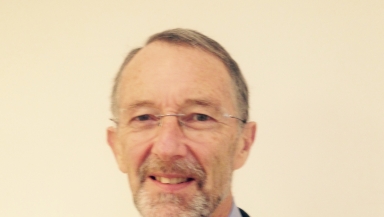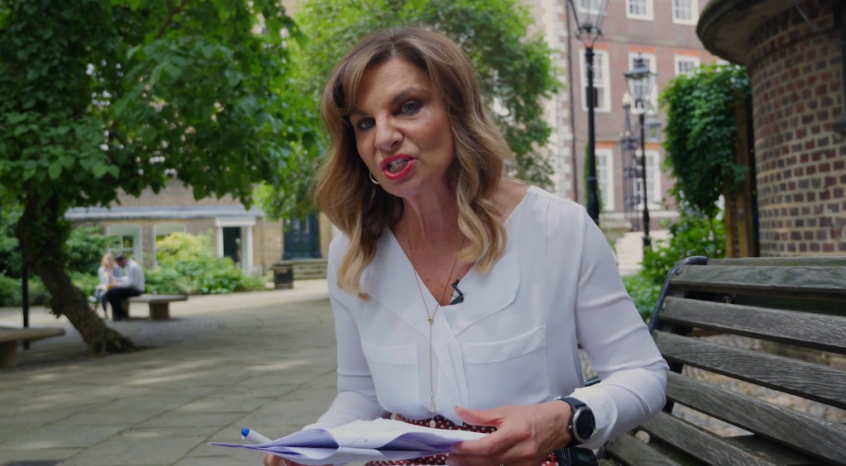
We live in a weird world. Tuning in to Radio Wales the other day I found myself listening to a man talking about his hobby as a "bingo caller". And to my utter amazement I heard him say that he's not allowed to use the traditional nickname for "88" any longer because it would offend too many people. If you don't know what that nickname is, a quick Google will tell you all you need to know.
It got me wondering, though, whether he'll soon be stopped from talking about "two little ducks" or "Buckle my shoe" as well.
But all this paled into insignificance when I read Richard Page's story just a few hours later. Richard is, or rather was, the Christian magistrate who had the temerity to suggest that it was in the best interest of children to have both a father and a mother. He was removed from his post as magistrate by then Lord Chancellor Michael Gove and Lord Chief Justice, Lord Thomas, in 2015 after serving in the role for 15 years.
He also lost his position as a non-executive director of the Kent and Medway NHS Trust because he dared to repeat his views on Radio 4. And now, much to many a Christian's dismay, he has lost his appeal at an employment tribunal as well.
It would seem that his problem is not so much what he believes, but the fact that he is willing to talk about it in the public square. This, it has been argued, is likely to have an adverse effect on the Trust's ability to engage with sections of the community it serves, as well as prejudicing the judiciary's impartiality.

I find all this staggering. Judgements like this do more than reflect the current "laissez faire" attitude towards morality in our society, an attitude that often claims Christian values are "hateful" and "discriminatory". They also betray a sense of self-delusion or overbearing pride that seems to be rooted in the belief that Christians are the only ones that are biased.
We need a bit of honesty here. Every one of us is biased in the sense that we understand life and take our decisions in the light of the fundamental worldview we have consciously adopted or unconsciously espoused. Once again, though, it is Christians who are singled out if they do what they have been told to do: take their message into the public sphere.
This is fundamental to the nature of the Gospel. It is tempting to think (and Christians have often fallen into this trap) that the Gospel is "all about me and my relationship with God". While there is truth in this of course, it cannot be limited to that. The Gospel states quite unashamedly that Jesus is the long awaited Messiah (Christ).
This is as much a public truth as the claim that Elizabeth II is the rightful Queen of England. But, as she acknowledges, He is her Lord too, and because of this we are to be His witnesses, conscious that He has been given all authority on earth as well as in Heaven.
This is why we must pray for, and do all we can to see His Kingdom extended whatever opposition we encounter. The first Christians understood this, which is why they were willing to deny the Lordship of the Emperor and the citizens of Thessalonica to complain: "They are all guilty of treason against Caesar, for they profess allegiance to another king, named Jesus."
Abraham Kuyper understood it too. Kuyper was the Prime Minister of the Netherlands between 1901 and 1905 who famously declared: "There is not a square inch in the whole domain of our human existence over which Christ, who is Sovereign over all, does not cry: 'Mine!"

Andrea Minichiello Williams, chief executive of Christian Legal Centre, which has supported Mr Page in his legal challenge, is right to claim then: "This case reveals frightening developments in our society. The judgement demonstrates a total lack of understanding of what it means to be Christian and what it means to live out your faith in the public sphere."
If I'm honest, Richard Page's case reminds me of the infamous "Thought Police" in George Orwell's remarkably prescient 1984. The "Thought Police", you might remember, sought out and punished "thoughtcrimes" and "crimethink" - that is, the intellectual actions of those who entertain and hold politically unacceptable thoughts.
Given all this then, all I can say is "Welcome to our Brave New World, Richard. It looks as if we've turned yet another page in our march towards rampant illberalism. Thankfully we can't and won't lose. History proves it and the resurrection guarantees it. We shall overcome. We always have and we always will."
Rob James is a Baptist minister, writer and church and media consultant to the Evangelical Alliance Wales. He is the author of Little Thoughts About a Big God













